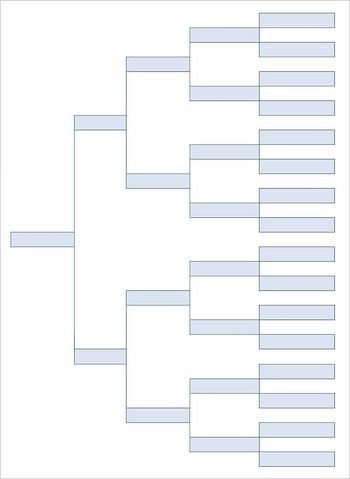One of the fundamentals of genealogy is the various numbering systems used to make quick and easily-read lists of ancestors. Perhaps the most common method of listing ancestors is to create an ahnentafel. Yet I suspect that word confuses most newcomers. Here is a (hopefully) simple explanation.
 An ahnentafel is a list of one's ancestors with each one numbered in a sequential manner that makes it easy to calculate relationships. The ahnentafel method is the most common method of numbering ancestors
An ahnentafel is a list of one's ancestors with each one numbered in a sequential manner that makes it easy to calculate relationships. The ahnentafel method is the most common method of numbering ancestors
Ahnentafel is a German word that translates as “ancestor table” or, literally, a list of one’s ancestors. The same numbering system is sometimes called the Sosa-Stradonitz System, named after the Spanish genealogist Hieronymus/Jerome de Sosa, who first used it in 1676, and after the German genealogist Stephan Kekulé von Stradonitz [1863-1933], who popularized it in his 1896 Ahnentafel Atlas.
In an Ahnentafel numbering system, the base person is assigned the number one. The father of each person is assigned a number equal to double the child’s number. The mother of each person is assigned a number equal to double the child’s number plus one. As a result, the number of any child is one-half that of their parent, ignoring any remainder. For the first four generations, the numbers assigned a given person and their ancestors reflect the following relationships:
1. person
2. father
3. mother
4. paternal grandfather
5. paternal grandmother
6. maternal grandfather
7. maternal grandmother
8. great-grandfather
9. great-grandmother
10. great-grandfather
11. great-grandmother
12. great-grandfather
13. great-grandmother
14. great-grandfather
15. great-grandmother
Translating this to a real person, here is an excerpt from the Ahnentafel of one well-known American, complete with Ahnentafel numbers:
1. George Walker Bush, b. New Haven, Conn., 6 July 1946, m. 5 Nov. 1977, Laura Lane Welch
2. George Herbert Walker Bush, b. Milton, Mass., 12 June 1924, m. Rye, N.Y., 6 Jan. 1945
3. Barbara Pierce
4. Prescott Sheldon Bush, b. Columbus, Ohio, 15 May 1895, m. Kennebunkport, Maine, 6 Aug. 1921, d. New York, N.Y., 8 Oct. 1972
5. Dorothy Walker, b. near Walker's Point, York Co., Me., 1 July 1901, d. Greenwich, Conn., 19 Nov. 1992
6. Marvin Pierce, b. Sharpsville, Pa., 17 June 1893, m. Aug. 1918, d. Rye, N.Y., 17 July 1969
7. Pauline Robinson, b. Ohio, April 1896, d. Rye, N.Y., 23 Sept. 1949
8. Samuel Prescott Bush, b. Brick Church, N.J., 4 Oct. 1863, m. Columbus, Ohio, 20 June 1894, d. Columbus, Ohio, 8 Feb. 1948
9. Flora Sheldon, b. Franklin Co., Ohio, 17 Mar. 1872, d. "Watch Hill", R.I., 4 Sept. 1920
10. George Herbert Walker, b. St. Louis, Mo., 11 June 1875, m. St. Louis, Mo., 17 Jan. 1899, d. New York, N.Y., 24 June 1953
11. Lucretia [Loulie] Wear, b. St. Louis, Mo., 17 Sept. 1874, d. Biddeford, Me., 28 Aug. 1961
12. Scott Pierce, b. Sparkville, Pa., 18 Jan. [or June?] 1866, m. 26 Nov. 1891
13. Mabel Marvin, b. Cincinnati, Ohio, 4 June 1869
14. James Edgar Robinson, b. near Marysville, Oh., 15 Aug. 1868, m. Marion Co., Ohio, 31 March 1895, d. 1931
15. Lula Dell Flickinger, b. Byhalia, Ohio, March 1875
The primary disadvantage of Ahnentafel numbers is that the size of each number when going back many generations becomes quite large. Someone with a documented line of descent from Charlemagne may be using Ahnentafel numbers in the billions.
Ahnentafel numbers are the only commonly-used numbers for ancestor lists. However, several systems exist for numbering descendants in a list.
 Latest News Articles
Latest News Articles Do you have an RSS newsreader? You may prefer to use this newsletter's RSS feed at:
Do you have an RSS newsreader? You may prefer to use this newsletter's RSS feed at: